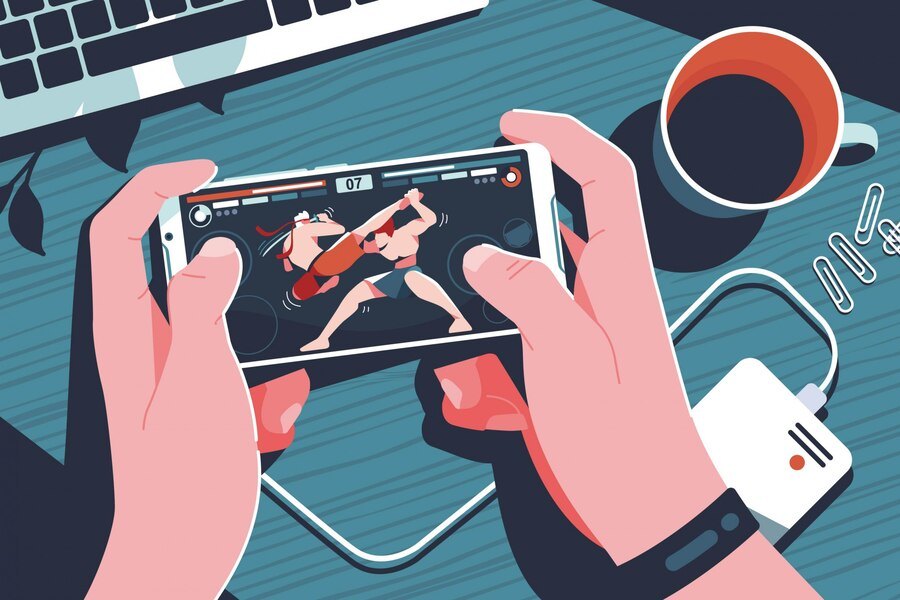Mobile games have become a huge part of our lives, offering entertainment, challenges, and sometimes even frustration when we can’t progress or keep up with more skilled players. Improving your skills can turn these frustrations into fun experiences, whether playing casually or aiming to compete at a higher level. We’ll share practical strategies to help you become better at mobile games.
Understand Game Mechanics
Game mechanics are the rules that govern how the game works. Every game has unique mechanics, and understanding them is key to improving.
Tips for Learning Game Mechanics:
- Study the Tutorial: Most games have a tutorial.
- Watch Gameplay Videos: Look for videos that break down the gameplay. You can find helpful guides from experienced players.
- Read the Game’s Guide: Many games have official guides or fan-made guides. Reading these can help you better understand how the game works.
Example:
If you are playing a racing game, the mechanics include knowing how to drift, timing your nitro boosts, or taking corners. Understanding these will give you an advantage.
| Game Type | Common Mechanics | Key Focus Areas for Improvement |
|---|---|---|
| Racing | Drifting, cornering, nitro timing | Mastering speed control |
| Puzzle | Pattern recognition, combo-making | Planning moves ahead |
| Strategy | Resource management, troop placement | Efficient planning |
Master Controls and Settings
The controls in mobile games can make or break your performance. Optimizing settings according to your preferences will help you play more smoothly.
Tips to Master Controls:
- Customize Your Layout: Most mobile games let you adjust the control layout. Place buttons where they feel natural to you.
- Adjust Sensitivity: In shooting or racing games, adjusting sensitivity can improve precision.
- Use Both Hands: Get used to playing with both hands to make your reactions faster and more efficient.
Example:
In a first-person shooter (FPS), setting the sensitivity to match your comfort level can greatly enhance your aiming accuracy.
Settings to Adjust for Better Control
| Game Type | Suggested Control Settings | Benefits |
|---|---|---|
| FPS | Adjust aim sensitivity and button layout | Improve aim and reaction speed |
| Racing | Adjust tilt or touch controls, sensitivity | Better control over movement |
| MOBA | Customize skill button locations | Quicker skill use |
Practice Regularly
Improvement comes with regular practice. However, it’s not about just playing for hours—it’s about practicing with intention.
Tips for Effective Practice:
- Set Small Goals: Instead of improving everything, focus on one skill at a time.
- Review Your Gameplay: After each session, consider what went well and where you can improve.
- Challenge Yourself: Play on higher difficulty settings or against stronger players to push your limits.
Example:
If you’re playing a MOBA (Multiplayer Online Battle Arena), you might focus on improving your farming efficiency one week and then work on your team-fighting skills the next.
Learn from Mistakes
Losing or failing is part of the learning process in mobile games. Each mistake can teach you something new.
Tips for Learning from Mistakes:
- Analyze Losses: Determining what went wrong after losing a match or level.
- Keep a Positive Attitude: Don’t get discouraged. Instead, view each failure as a learning opportunity.
- Get Feedback: Ask other players or friends for advice on where you could improve.
Example:
If you lose in a strategy game, replay the level and try different tactics. You may discover that you must manage resources better or change your troop placement.
Join Communities
Mobile game communities are a valuable resource for learning new tips and tricks from other players.
Tips for Community Involvement:
- Join Forums and Discords: These are places where players share strategies and tips.
- Participate in Events: Many games host community events that allow you to practice with others.
- Watch Livestreams: Platforms like Twitch and YouTube allow you to see how skilled players approach the game.
Example:
Joining a community for a card-collecting game can help you learn deck-building strategies from players with more experience.
Top Platforms to Connect with Mobile Gaming Communities
| Platform | Best For | How It Helps |
|---|---|---|
| Discord | Real-time chat, game-specific servers | Getting quick tips and advice |
| Game subreddits with guides and discussions | In-depth game breakdowns | |
| Twitch/YouTube | Watching live gameplay or tutorials | Learning advanced techniques |
Experiment with New Strategies
Relying on the same tactics can limit your growth. Trying new strategies keeps the game fresh and helps you discover new ways to succeed.
Tips for Experimenting:
- Try Different Characters/Weapons: Many games have multiple characters or weapons. Explore their strengths and weaknesses.
- Play Different Modes: Some games offer various modes (e.g., solo, co-op, ranked). Trying new modes helps you understand the game from different angles.
- Change Your Approach: Try a completely different approach if something isn’t working.
Example:
If you usually play aggressively in a fighting game, try adopting a defensive strategy for a while to see if it works better.
Take Breaks for Better Focus
Playing for too long can lead to burnout and poor performance. Taking breaks keeps your mind sharp and helps you focus.
Tips for Balancing Playtime:
- Use a Timer: Set a timer to remind yourself to take breaks after every 30-60 minutes of play.
- Stretch and Move Around: Physical movement during breaks helps you refresh your mind.
- Avoid Overplaying: It’s better to play for shorter periods with focus rather than long sessions where your concentration fades.
Example:
If you play a competitive game for hours without stopping, your reaction time and decision-making may suffer. Taking short breaks can help you maintain peak performance.
Ideal Break Intervals Based on Game Type
| Game Type | Suggested Playtime Interval | Break Duration |
|---|---|---|
| Competitive FPS | 30 minutes | 5-10 minutes |
| Puzzle/Strategy | 45 minutes | 10-15 minutes |
| Casual Games | 60 minutes | 5 minutes |
Study Professional Players
Professional mobile gamers often deeply understand the game, making them great to learn from.
Tips for Learning from Pros:
- Watch Tournaments: Many games have professional tournaments where top players compete. Watch these to learn advanced strategies.
- Read Interviews: Pros often share their insights in interviews. Please take note of how they prepare and what they focus on.
- Follow Pros on Social Media: They often share tips, gameplay clips, and strategies with their followers.
Example:
Following a professional player in a multiplayer online battle arena (MOBA) game can teach you about advanced positioning, character builds, and team coordination.
Conclusion
Improving in mobile games doesn’t happen overnight, but you’ll see progress with the right strategies and consistent practice. Whether you’re mastering controls, learning from mistakes, or studying professionals, every effort you put in will lead to better results. Remember these tips, stay patient, and, most importantly, have fun while improving!

